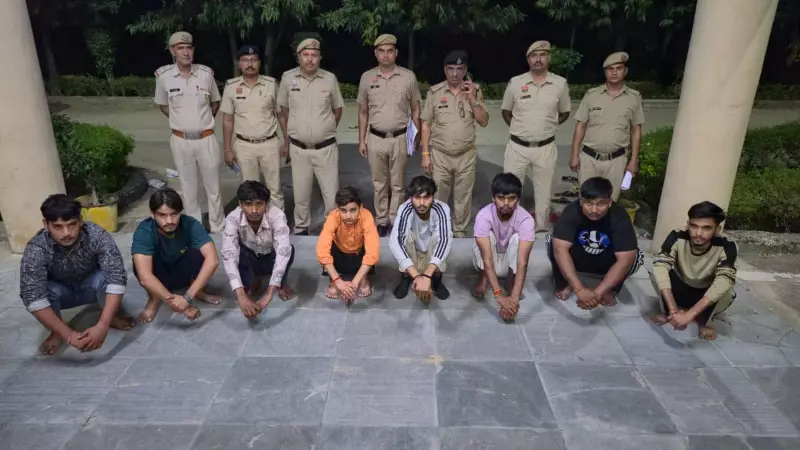
In a disturbing incident that unfolded during Diwali celebrations, Gurgaon police have taken decisive action by arresting eight individuals connected to the brutal assault of a 19-year-old Dalit youth. The attack occurred following a disagreement over firecrackers, casting a shadow over the festival of lights.
The Violent Confrontation
The victim, identified as a Class 12 student, was allegedly targeted by a group of men from another community after he objected to them bursting firecrackers dangerously close to his residence in Gurgaon's Sector 66. What began as a verbal argument quickly escalated into physical violence.
According to police reports, the situation turned violent when the accused individuals began hurling caste-based slurs at the young man before launching a brutal physical attack. The assailants allegedly beat him with sticks and other objects, leaving him with significant injuries that required medical attention.
Police Response and Arrests
Gurgaon police acted swiftly on the complaint filed by the victim's family. "We have arrested eight persons in connection with the assault case," confirmed a senior police official. "The accused have been charged under relevant sections of the Indian Penal Code and the Scheduled Castes and Scheduled Tribes (Prevention of Atrocities) Act."
The police investigation revealed that the attack was premeditated, with the accused allegedly gathering additional support before confronting the youth. All eight arrested individuals are currently in judicial custody as the investigation continues.
Broader Implications
This incident has sparked fresh concerns about caste-based discrimination persisting in urban centers like Gurgaon, which is known as a major IT and corporate hub. Community leaders have emphasized that such incidents during major festivals are particularly troubling.
Local activists have called for stronger measures to prevent caste-based violence and ensure the safety of marginalized communities. "The fact that such attacks continue to occur in our cities shows that we need more awareness and stricter enforcement of anti-discrimination laws," stated a representative from a Dalit rights organization.
As the legal process moves forward, the case serves as a stark reminder that despite technological and economic progress, social harmony remains a work in progress in many parts of urban India.





